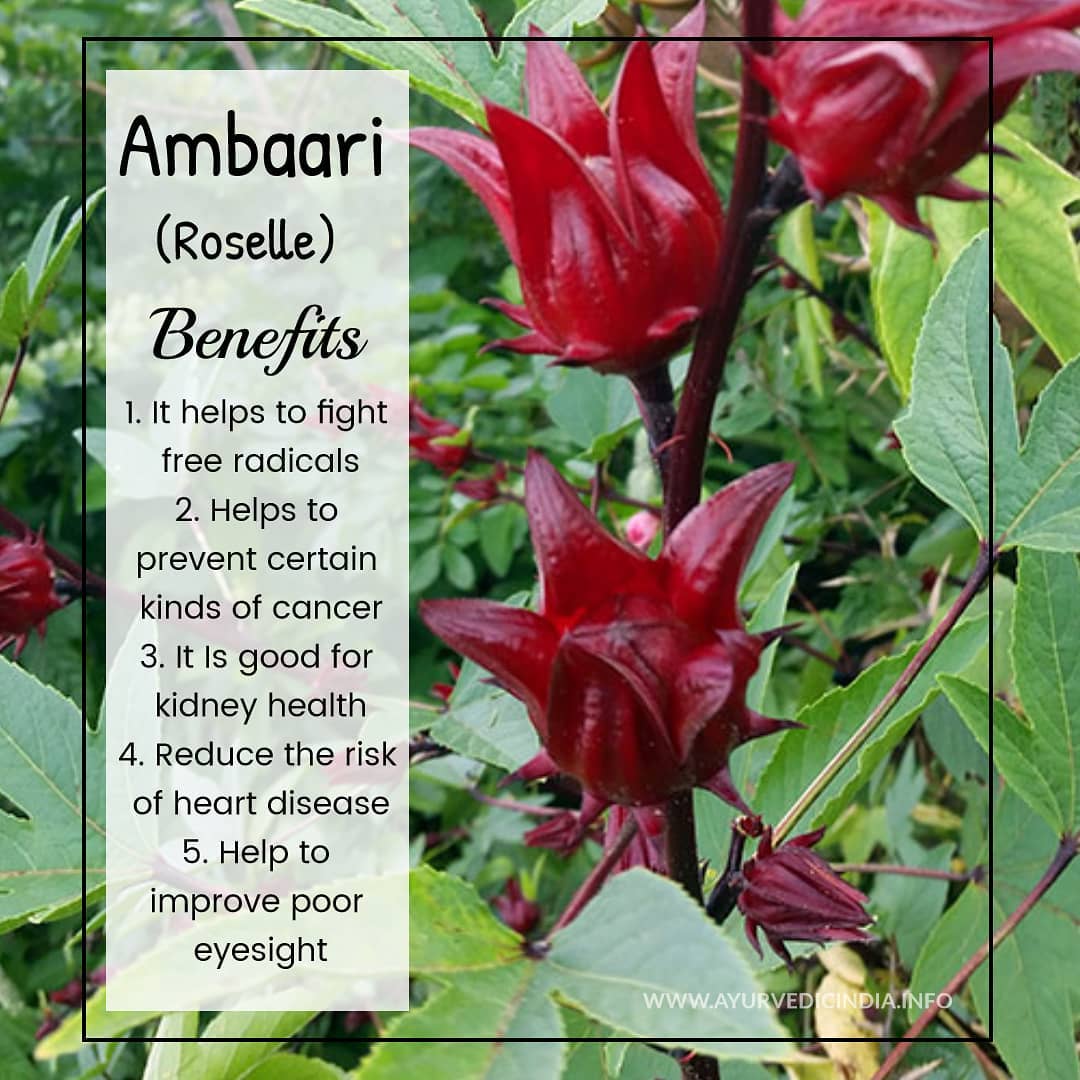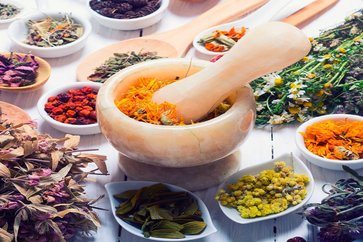Ambadi Bhaji: The Vegetable Leaves With Many Health Benefits
Ambadi, scientifically known as Hibiscus cannabinus, is a versatile and fascinating plant that has been cherished for its various uses and benefits for centuries. With its origins traced back to Asia and Africa, this member of the Malvaceae family has captured the attention of many due to its exceptional characteristics.
This plant serves as a powerhouse of essential nutrients, including the noteworthy presence of Vitamin C, iron, calcium, magnesium, and phosphorus. Moreover, its valuable bioactive compounds contribute to its reputation as a natural remedy in traditional medicine practices.
The versatility of Ambadi extends beyond its health benefits; its culinary uses are equally impressive. From enriching dishes with its tangy and distinct flavor to adding a touch of color as a garnish, Ambadi has found its way into a myriad of cuisines across the globe.
What is Ambadi?
Ambadi is a member of the Malvaceae family and is native to Asia and Africa. Standing as a shrub-like plant, Ambadi displays a lush canopy of green leaves that elegantly complement its vibrant and captivating yellow flowers.
The plant is rich in essential nutrients and bioactive compounds, making it a valuable addition to any diet. Its aesthetic appeal is just the beginning, as the true beauty of Ambadi lies within its nutritional prowess and wealth of bioactive compounds.
Ambadi and Ayurveda
Ambadi holds significant importance in Ayurveda, the ancient Indian system of medicine. In Ayurveda, Ambadi is known for its various medicinal properties and is considered a valuable herb for promoting overall health and well-being.
According to Ayurvedic principles, Ambadi is believed to have cooling properties, making it beneficial for balancing excessive heat in the body. It is often used to pacify Pitta dosha, one of the three fundamental energies that govern the body’s functions.
In Ayurvedic practices, Ambadi is commonly used in the form of decoctions, herbal teas, or as a component in herbal formulations. It is known to support digestion, alleviate inflammation, and enhance skin health. Additionally, Ambadi is revered for its ability to cleanse the blood and promote detoxification.
Ambadi Ayurvedic Properties
Ambadi, also known as Hibiscus cannabinus, holds several ayurvedic properties that have been recognized and utilized in traditional Indian medicine. Some of the key ayurvedic properties of Ambadi are:
1. Cooling (Sheetala): Ambadi is considered cooling in nature, which means it helps pacify excess heat or Pitta dosha in the body. It is often used to balance conditions associated with excessive heat, such as inflammation and acidity.
2. Digestive Stimulant (Deepana): Ambadi is known to stimulate the digestive fire or Agni, which aids in improving digestion and assimilation of nutrients. It is used to support healthy digestion and alleviate digestive issues.
3. Detoxifying (Shodhana): Ambadi is believed to have detoxifying properties that help eliminate toxins from the body. It is used in Ayurvedic practices to support the body’s natural detoxification processes and cleanse the blood.
4. Anti-inflammatory (Shothahara): Ambadi is recognized for its ability to reduce inflammation and swelling in the body. It is commonly used in Ayurveda to manage inflammatory conditions.
5. Blood Purifier (Rakta Shodhana): Ambadi is considered beneficial for purifying the blood and supporting healthy blood circulation. It is often used in Ayurvedic remedies for skin disorders and other conditions related to blood impurities.
6. Hair and Skin Health (Keshya and Twak Shodhana): Ambadi is believed to promote healthy hair and skin. It is used in hair oils and skin formulations to enhance hair growth, improve skin texture, and address various skin concerns.
7. Cardiovascular Support (Hrudya): Ambadi is thought to have a positive effect on the heart and cardiovascular system. It is used in Ayurvedic practices to support heart health and maintain healthy blood pressure levels.
8. Nutritive (Rasayana): Ambadi is considered nutritive and nourishing for the body. It is used to provide essential vitamins, minerals, and nutrients to promote overall health and vitality.
Note: It is important to note that while Ambadi possesses these Ayurvedic properties, individual experiences may vary, and the use of any Ayurvedic remedy should be done under the guidance of a qualified Ayurvedic practitioner.
Ambadi Names Around the World
Here are some names of Ambadi used in different parts of the world:
1. Marathi (India): Ambadi
2. Hindi (India): Ambada, Pitwaa
3. Bengali (India): Poi saag, Gongura
4. Tamil (India): Pulichchaikerai
5. Gujarati (India): Ambadi, Pitwaa
6. Kannada (India): Harka
7. Telugu (India): Gongura
8. Malayalam (India): Pulicha keerai
9. Odia (India): Poi saaga
10. English: Kenaf
11. Chinese: Chin baung
12. Spanish: Rosella or Rosa de Jamaica
13. Indonesian: Kenaf or Daun rame
14. Filipino: Saluyot
15. Thai: Krachiap
16. Vietnamese: Gùa hoa
17. Swahili: Mlenda or Mrenda
18. Nigerian: Achingbara
19. Ethiopian: Telba or Telambet
These diverse names reflect the global presence and cultural significance of Ambadi, known and valued in various regions for its culinary uses and health benefits.
Nutritional Profile of Ambadi
Here is the nutritional value of Hibiscus cannabinus (Ambadi) per 100 grams, along with the percentage of the recommended daily intake (based on a 2,000-calorie diet):
- Vitamin C: 61.3 mg (102.2%)
- Iron: 3.9 mg (21.7%)
- Calcium: 143 mg (14.3%)
- Magnesium: 85 mg (20.2%)
- Phosphorus: 112 mg (16%)
- Fiber: 6.1 g (24.4%)
- Protein: 6.7 g (13.4%)
- Potassium: 1150 mg (24.5%)
These values highlight the remarkable nutritional richness of Ambadi. Including this plant in your diet can significantly contribute to meeting your daily nutrient requirements, supporting your health and well-being naturally.
Nutritional Value of Ambadi With Health Benefits
- Vitamin C: Ambadi is abundant in Vitamin C, a potent antioxidant that strengthens the immune system and promotes skin health.
- Iron: This plant is a good source of iron, crucial for maintaining healthy blood and preventing anemia.
- Calcium: Ambadi contains calcium, vital for strong bones and teeth, supporting overall bone health.
- Magnesium: Magnesium in Ambadi aids in various bodily functions, including nerve and muscle function.
- Phosphorus: The presence of phosphorus contributes to bone health and energy metabolism.
- Fiber: Ambadi is a rich source of dietary fiber, promoting digestive health and regulating bowel movements.
- Protein: While not exceptionally high, Ambadi contains protein, an essential macronutrient for growth and repair.
- Potassium: Ambadi supplies potassium, contributing to heart health and regulating blood pressure.
Health Benefits of Ambadi
Ambadi proves to be a valuable addition to any diet. From promoting healthy skin and hair to enhancing heart and bone health, this remarkable plant has many other health benefits which are given below:
1. Beneficial for Women
Ambadi stands as an excellent natural source of iron and folic acid, offering essential nutrients crucial for women’s health. Unlike iron supplements, Ambadi does not lead to constipation, making it a gentle and effective option for meeting iron needs.
Moreover, its abundant Vitamin C content aids in reducing menstrual discomfort and lessening bleeding during periods.
Enjoy Ambadi as a comforting tea during regular menstrual cycles to harness its health benefits and promote overall well-being. Let this remarkable plant be a natural ally in supporting women’s health and vitality.
2. Promotes Strong Bones
Ambadi leaves prove to be a remarkable asset in maintaining optimal bone health, as supported by various studies. This mineral-rich plant boasts substantial quantities of calcium, magnesium, and phosphorus, all of which play a vital role in preserving strong and healthy bones.
Embracing a diet enriched with these essential minerals can help ward off issues like osteoporosis and ensure your bones remain robust and resilient.
Let Ambadi be your natural ally in promoting strong bones, empowering you to lead an active and fulfilling life with confidence.
3. Enhances Immune System
Ambadi’s exceptional concentration of vitamin C, also known as ascorbic acid, plays a pivotal role in fortifying the immune system and elevating the body’s white blood cell count.
This boost to the immune response is one of the key reasons why ambadi and gongura remain popular food choices, particularly during the monsoon season.
By incorporating these vitamin-rich foods into your diet, you equip your body with the necessary tools to ward off illnesses and stay resilient during challenging weather conditions.
Embrace the natural goodness of ambadi and gongura, and let their immune-boosting properties empower you to thrive all year round.
4. Enhances Heart Health
High homocysteine levels in the blood are associated with early cardiac and renal issues. However, Ambadi proves to be a fantastic natural solution, as it is a rich source of folate and vitamin B6.
These essential nutrients play a crucial role in maintaining low levels of homocysteine, promoting heart health and reducing the risk of cardiovascular problems.
By incorporating Ambadi into your diet, you empower your heart with the nutrients it needs to stay healthy and strong. Embrace the benefits of Ambadi and take a proactive step towards a healthier heart and a more vibrant life.
5. Suitable for Diabetics
Ambadi’s fiber content proves to be beneficial in regulating blood sugar levels, making it an ideal addition to a diabetic-friendly diet. This low-glycemic index combination meal, traditionally enjoyed with bhakri made of makai, jowar, bajra, and ragi, further aids in stabilizing blood glucose levels.
By incorporating ambadi into your meals, you can support better blood sugar management and enjoy a delicious and nourishing culinary experience.
Let ambadi be your ally in maintaining stable blood sugar levels and promoting overall well-being for a healthier and happier life.
6. Aids in Relieving Constipation
Ambadi’s abundance of magnesium and fiber proves highly effective in providing relief from constipation. Its vitamin’s natural laxative effect relaxes intestinal muscles, facilitating smoother bowel movements.
Additionally, Ambadi’s ability to draw water softens the stool, making it easier to pass. Embrace the benefits of Ambadi to support a healthier digestive system and avoid the discomfort of constipation.
Let this natural remedy be your ally in promoting regularity and maintaining optimal digestive health for a more comfortable and enjoyable life.
7. Nurtures Skin and Hair
Ambadi’s rich antioxidants and vitamins work wonders in nurturing healthy skin and hair, diminishing signs of aging, and enhancing a natural radiant glow.
Embrace the natural goodness of Ambadi to revitalize your skin and hair, unlocking their full potential for a vibrant and youthful appearance.
Let this remarkable plant be your ally in achieving a radiant and confident self, as it brings forth the gifts of nature to support your beauty and well-being from within.
8. Assists in Weight Management
With its low-calorie content and metabolism-boosting properties, Ambadi proves to be a valuable aid in weight management. Embrace the natural benefits of Ambadi to support your weight loss journey and promote a healthier and fitter lifestyle.
Let this remarkable plant be your ally in achieving your weight goals, as it empowers you to embrace a balanced and wholesome approach to a healthier you.
How to Incorporate Ambadi into Your Diet
You can include Ambadi in your diet through various means. The leaves can be used to make salads, soups, and stir-fries, while the flowers can be brewed into tea or added as a garnish to dishes.
Precautions and Side Effects
While Ambadi offers numerous health benefits, it is essential to exercise caution and be aware of potential side effects. Here are some precautions to consider before incorporating Ambadi into your diet:
1. Allergies: Individuals with known allergies to plants in the Malvaceae family, such as hibiscus, may also be allergic to Ambadi. If you experience any allergic reactions like itching, rashes, or difficulty breathing, discontinue use immediately and seek medical attention.
2. Moderation: Like any food or supplement, moderation is key. Excessive consumption of Ambadi may lead to stomach upset or other gastrointestinal issues. It’s best to consume it in recommended quantities.
3. Pregnancy and Breastfeeding: Pregnant and breastfeeding women should consult their healthcare providers before adding Ambadi to their diets to ensure it is safe for them and their babies.
4. Medication Interactions: If you are taking any medications or have underlying health conditions, consult your healthcare provider before using Ambadi as it may interact with certain medications or medical treatments.
5. Gastrointestinal Disorders: Individuals with existing gastrointestinal disorders should be cautious while consuming Ambadi, as its laxative effect may exacerbate certain conditions.
6. Kidney Stones: Ambadi contains oxalates, which can contribute to kidney stone formation in susceptible individuals. If you have a history of kidney stones, limit your intake of Ambadi.
7. Diabetes: Although Ambadi may help regulate blood sugar levels, individuals with diabetes should monitor their blood glucose closely when including it in their diet.
Conclusion
Ambadi, with its impressive nutritional content and health-promoting properties, proves to be a valuable addition to our daily routines.
Whether incorporated into our meals or utilized for medicinal purposes, this versatile plant has much to offer. Embrace the natural goodness of Ambadi and embark on a journey towards improved health and well-being.
FAQs (Frequently Asked Questions) on Ambadi
1. Can Ambadi be consumed by pregnant women?
Pregnant women should consult their doctors before adding Ambadi to their diets to ensure it is safe for them and their unborn child.
2. Is Ambadi suitable for individuals with diabetes?
Ambadi may help regulate blood sugar levels, but individuals with diabetes should consult their healthcare providers before using it as a supplement.
3. How can I use Ambadi leaves in my dishes?
Ambadi leaves can be added to salads, soups, and stir-fries for a nutritious boost and a pleasant, tangy flavor.
4. Can Ambadi help with weight loss?
Ambadi’s low-calorie content and metabolism-boosting properties may aid in weight management when combined with a balanced diet and regular exercise.
5. Are there any side effects of consuming Ambadi?
Excessive consumption of Ambadi may lead to stomach upset and allergies, so it’s best to consume it in moderation.
6. What is Ambadi Bhaji called in English?
Ambadi Bhaji is called “Kenaf” in English.
References:
- South Indian leafy vegetable Gongura (Hibiscus sabdariffa L.) as an important medicinal herb: a review(1)
- Nutritional and Phytochemical Analysis of Wild Leafy Vegetable Hibiscus sabdariffa L. (Ambadi Bhaji) Used By the Tribes of Bhiwapur Tehsil Nagpur District, India(2)
- Chemical composition and nutritive value of ambadi (Hibiscus cannabinus) meal for layers(3)
- Kenaf (Hibiscus cannabinus L.) Leaves and Seed as a Potential Source of the Bioactive Compounds: Effects of Various Extraction Solvents on Biological Properties(4)
Ambadi’s presence in Ayurveda further underscores its historical significance and the profound respect it has garnered as a potent medicinal herb for generations. Today, this remarkable plant continues to inspire curiosity and admiration, as modern research continues to unveil its hidden potential in the pursuit of holistic well-being.


























